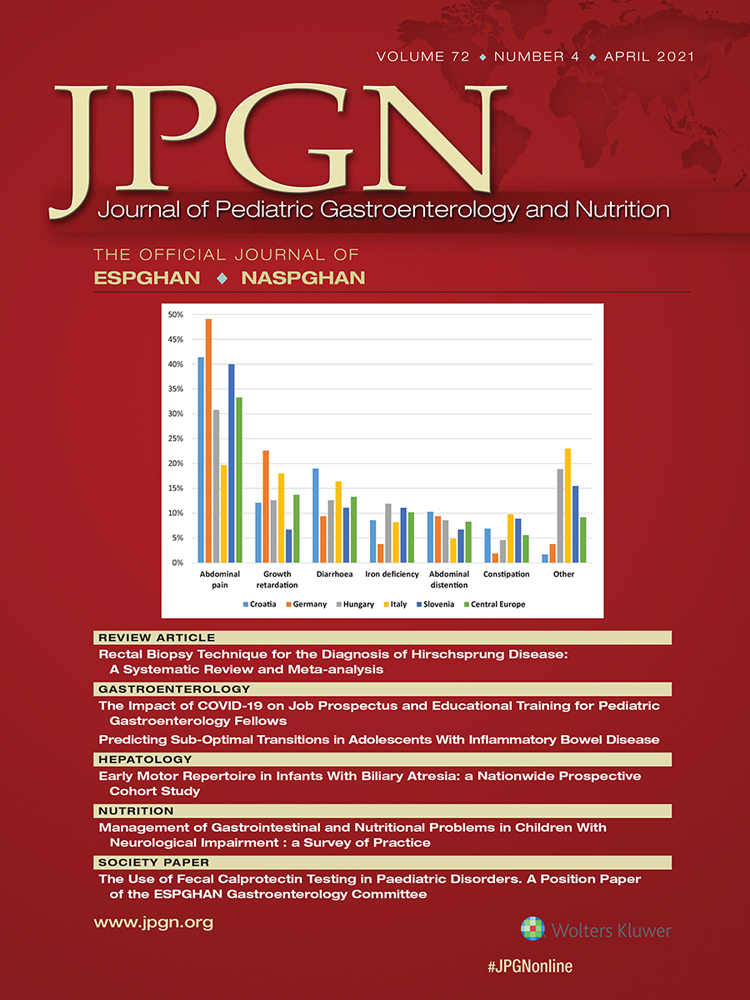Pediatric Patients’ and Parents’ Perspectives of Unsedated Transnasal Endoscopy in Eosinophilic Esophagitis
A Qualitative Descriptive Study
Supplemental digital content is available for this article. Direct URL citations appear in the printed text, and links to the digital files are provided in the HTML text of this article on the journal's Web site (www.jpgn.org).
North American Society for Pediatric Gastroenterology, Hepatology & Nutrition (NASPGHAN) Innovations in Clinical Care Grant.
J.F. is the President and Chief Medical Officer of EvoEndo (formerly known as Triple Endoscopy, Inc). He is co-inventor on patents pending AU 2016283112, CA 2,990,182, US 15/853,521, US 15/887,438. EP 16815420.1, JP 2017-566710, PCT/US2018/067152, EP 18890819.9, JP 2020-534933, US 15/850,939, PCT/US2019/034954, US 16/428,408, US 16/573,567, and PCT/US2019/051523 related to endoscopic methods, distraction techniques, and technologies. These are related to unsedated transnasal endoscopy and distraction technologies. The remaining authors report no conflicts of interest.
ABSTRACT
Background:
Eosinophilic esophagitis is an increasingly common inflammatory disease of the esophagus. Diagnosis and management are based on the histological presence of eosinophils in the esophageal mucosa, often requiring multiple endoscopies with sedation. Unsedated transnasal endoscopy (TNE), an alternative method of assessing the mucosa without the risks of sedation, is now being performed in the pediatric population. This is the first qualitative study on pediatric patients’ and parents’ experiences with TNE.
Objective:
The objective of the study was to describe pediatric patients’ and parents’ experiences of TNE with the goal of refining TNE protocols to improve the clinical experience.
Methods:
We used a qualitative descriptive approach that included in-depth, semistructured interviews with patients and parents following completion of TNE. Interviews continued until we reached thematic saturation. We analyzed data using qualitative content analysis.
Results:
A total of 21 interviews were completed. We identified 4 themes: Appeal of TNE; Expectations and Preparation for TNE; Tolerance of TNE; and Evaluation of TNE. Perceived positive aspects of TNE were no exposure to intravenous anesthesia; helpful and clear preparation for the procedure with a demonstration video and physician phone call; distraction during TNE with virtual reality goggles and a stress ball; parent able to accompany the patient; and TNE requiring less time than an esophagogastroduodenoscopy. Negative aspects included patient stress before TNE, patient dislike of nasal spray taste and sensation, and discomfort during the TNE procedure.
Conclusion:
The overall perception of TNE among our participants was positive. Study data will allow pediatric gastroenterologists the opportunity to improve both preparation for and comfort during TNE.




